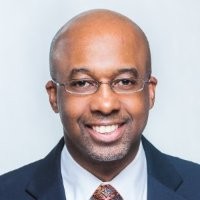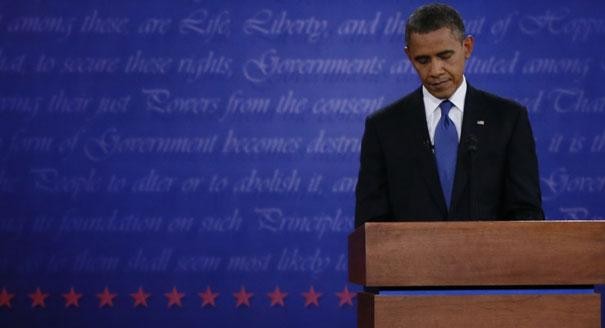We are now less than a month away from August 7th, when the final votes in the Shelby County general election and state and federal primaries will be counted, and distinct patterns are taking shape.
Those races that were expected to be the most closely watched ones at the beginning of the election season — for the 9th District congressional seat, for Shelby County Mayor, for District Attorney General, for the District 29 state Senate seat, and for Juvenile Court Judge and Juvenile Court Clerk, among others — continue to command attention.
Although several circumstances — including charges and counter-charges, endorsements, demographics, and the like — are potentially influencing voter reactions, one factor that cannot be overlooked is the perennial one of money. Some candidates have it in spades, while others are struggling.
A word of caution: Lest it be forgotten, two candidates in the May 6th primaries for county offices — Kenneth Whalum, running for the Democratic nomination for County Mayor, and Martavius Jones, a candidate in the Democratic primary for the District 10 County Commission seat — nearly won races against highly favored opponents with more visible campaigns and vastly more funding.
Credit those outcomes to the power of name recognition, which remains a major factor in the current scene.
For what it’s worth, however, here are three examples:
• City Councilman Lee Harris, who is campaigning aggressively in his Democratic primary effort to unseat District 29 state Senator Ophelia Ford, garnering endorsements by the bushel and across the political board, is also raising disproportionate amounts of money — he boasts a 10-to-1 ratio over Ford’s in the reporting quarter ending June 30th. (His edge in money on hand is somewhat lesser — $28,646.29 to $11,549.66, a shade less than 3-to-1).
• Incumbent Republican County Mayor Mark Luttrell, whose ads have been omnipresent on TV of late, has a marked financial advantage over Democratic nominee Deidre Malone, with a reported $132,417 on hand as of the June 30th report, against $38,915.
• Rather famously, the Democrats’ nominee for District Attorney General, Joe Brown, whose colleagues on the party ticket were counting on him for help, both from the luster of his “Judge Joe Brown” TV fame and from his bankroll, has hit snags in both respects and reports only $745 on hand as of June 30th, compared to $269,227 for his opponent, Republican incumbent D.A. Amy Weirich.
In all three of these cases, the financial underdog is seeking a tactical edge elsewhere.
Ford had her first public event last week, a fund raiser/meet-and-greet at the funeral home of brother Edmond Ford on Elvis Presley Boulevard, gathering around her not only numerous members of the still powerful Ford extended family but supporters from elsewhere on the political spectrum, notably GOP County Commissioner Terry Roland, her former opponent in a 2005 special election.
Malone continued with a series of events targeting various components of the Shelby County body politic — meeting, for example, with a group of women’s rights advocates on Saturday at Pyro’s Pizza on Union, and contrasting her strong pro-choice stance with what she described as positions on Luttrell’s part that were ambivalent at best, particularly in his having chosen to disenfranchise Planned Parenthood in 2011 as the county’s partner in employed Title X federal funding for women’s health.
Brown, meanwhile, was working the grass roots, especially in the inner city, with his “Law and Order Tour” with sidekick Bennie Cobb, the Democratic nominee for Sheriff. He presided over an event last week at the Central Train Station downtown and made appearances at forums, like one held at St. Augustine’s Catholic Church on Sunday, where he continued to levy attacks on Weirich, blaming her for negligence in the matter of the much-discussed rape-kit backlog and questioning her use of federal and state funding.
• Early voting for the August 7th elections begins this Friday, July 18th, at the Shelby County Election Commission’s downtown location, and will continue there and, from Monday, July 21st, at 21 satellite voting sites until Saturday, August 2nd. (The locations of the satellite sites will be posted at memphisflyer.com.)
• In the wake of several meetings of the Shelby County Democratic Executive Committee hashing out disputes over the party’s endorsement of judicial candidates but leaving them intact, a group of Democratic lawyers, including former party chairmen David Cocke and Van Turner, is issuing its own ballot — including judges left off the party endorsement list whom they deem deserving.
These include Probate Court Judge Kathleen Gomes, Criminal Court Judge Mark Ward, and General Sessions Judges Bill Anderson, Phyllis Gardner, and John Donald, among others.
• The first fully separate cattle call for Board candidates took place Monday night at the First Baptist Church on Broad under the joint sponsorship of several ad hoc education organizations.
Present and accounted for were Chris Caldwell and Freda Garner-Williams in District 1; Stephanie Love in District 3; David Winston in District 5; Shante K. Avant in District 6; Miska Clay Bibbs in District 7; and Roshun Austin, Mike Kernell, and Damon Curry Morris in District 9.
Absent from the event, which took place during an off-and-on thunderstorm, were Teddy King and Anthony D. Lockhart in District 3; Scott McCormick in District 5; Jimmy L. Warren in District 6; and William E. Orgel in District 8.
The format called for each candidate to make an introductory statement and field one question from the moderator, Daarel Burnette II of the education periodical Chalkbeat Tennessee subbing for Keith Norman, the church pastor, who was absent. Though Burnette’s question was the same for each candidate, having to do with the candidate’s foremost objective as a prospective board member, there was a fair amount of variety in the answers elicited, most of them sensible and well informed, concerning issues ranging from curriculum to parent-teacher relations.
A final round of questions was solicited from the audience. Fielding a question about the desirability of separating “politics” from education, Kernell, a longtime state representative from southeast Memphis, was unique in embracing that inevitable pairing, saying that his experience and entrée with the state legislature could have positive results for his district and Shelby County Schools (SCS).
The nine-member SCS board being elected in this year’s school board elections from the city of Memphis and unincorporated areas of Shelby County replaces the provisional seven-member board, which was elected from the whole of Shelby County.
One of the members of the outgoing seven-member board, David Reaves of Bartlett, was an interested spectator Monday night, chatting amiably before the event with several of his current Board colleagues who were taking part in the forum. Reaves is now a County Commissioner-elect and will be swapping chairs in September.
Monday night’s event took place under the auspices of the Black Alliance for Educational Options. Ad hoc co-sponsors included representatives of Students First, Stand for Children, and the aforesaid Chalkbeat Tennessee.










